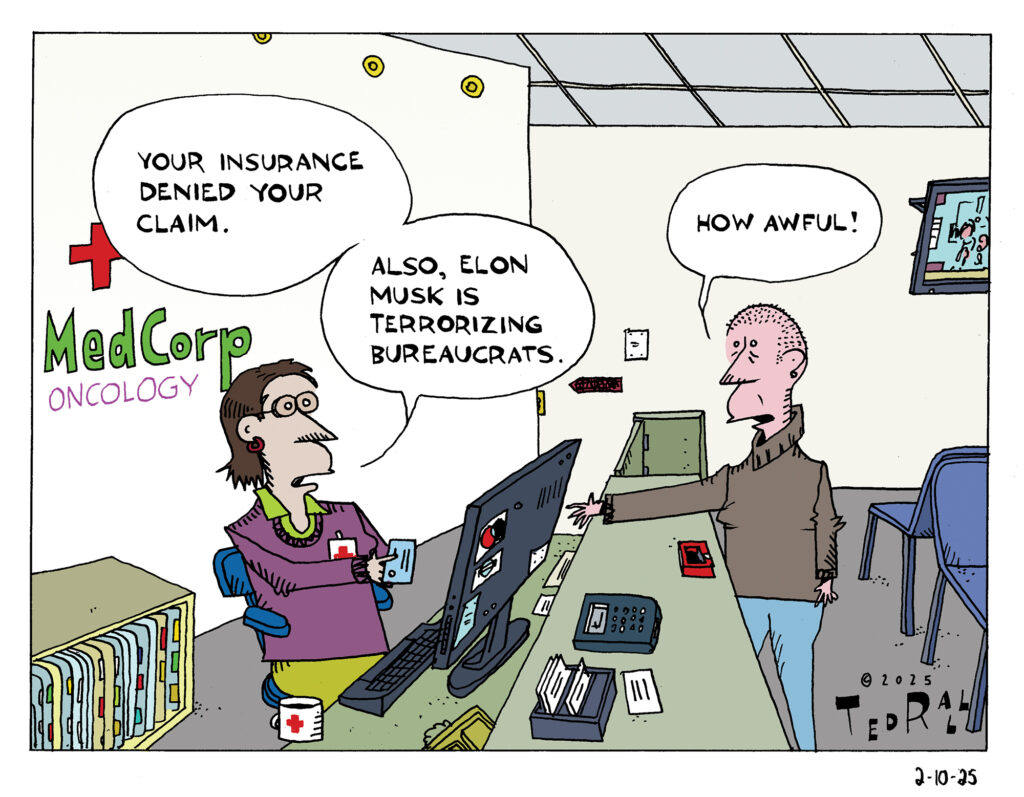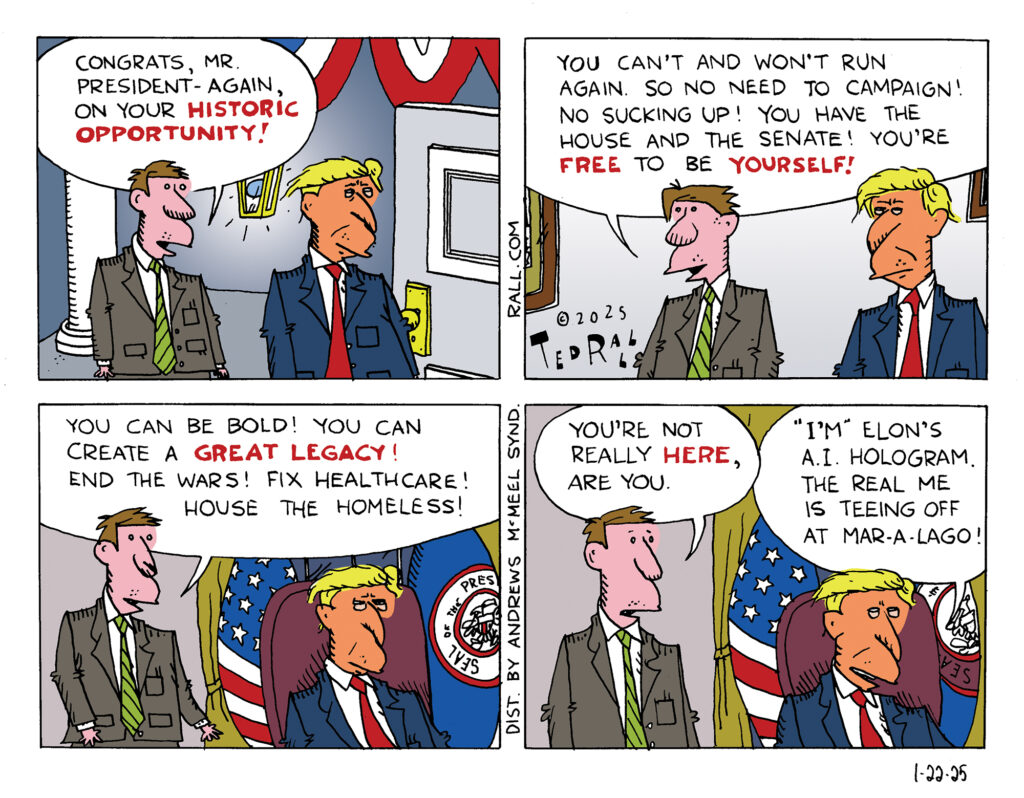Live at 10 am Eastern/9 am Central time, and Streaming 24-7 Thereafter:
Five years ago this week, the United States entered an unprecedented national lockdown. The COVID-19 pandemic prompted the government, businesses and educational institutions to shut down. The streets of major cities turned into ghost towns. Confused, traumatized and terrified of a fatal respiratory virus whose means of transmission was not clearly understood until later, Americans hid in their homes while over a million of their fellow citizens died, many of them alone in terrible agony.
The novel coronavirus struck as the United States was experiencing three major societal trends: a growing divide between Left and Right, decreasing trust in institutions and a splintering of the information environment.
Three-quarters of Americans say the pandemic took a toll on their own lives. 27% say they were traumatized. On “The TMI Show,” Ted Rall and Manila Chan ask: What are the longstanding implications? Have we learned anything? What would we do different?



 The arrest of a suspect in the assassination of UnitedHealthcare CEO Brian Thompson on a street in midtown Manhattan leaves some questions unanswered. But the gleeful reaction to the executive’s slaying leaves nothing subject to interpretation. Many Americans feel that they have been treated so shabbily by the health insurance industry that they despise it and want their leaders to die—and they’ve been
The arrest of a suspect in the assassination of UnitedHealthcare CEO Brian Thompson on a street in midtown Manhattan leaves some questions unanswered. But the gleeful reaction to the executive’s slaying leaves nothing subject to interpretation. Many Americans feel that they have been treated so shabbily by the health insurance industry that they despise it and want their leaders to die—and they’ve been 